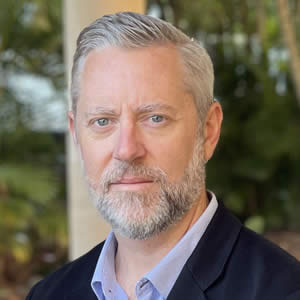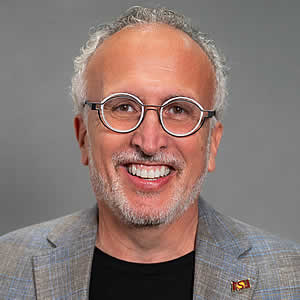Keynote Speakers
Jason Lodge. The University of Queensland (Australia)
Keynote: The AI paradox: In supporting learning, AI is undermining it
The proliferation of AI (particularly generative AI and automated decision-making systems) in education is forcing a reappraisal of the relationship between technology and learning. While these tools offer unprecedented efficiency, their capacity to reduce intellectual challenge directly conflicts with established principles of cognitive science. Evidence consistently demonstrates that deep, persistent learning is not a product of ease but is instead forged through productive struggle and the resolution of cognitive conflict. Removing this "desirable difficulty" risks eroding the very metacognitive and self-regulatory skills that are foundational to adapting and thriving in the age of AI. The rise of increasingly intelligent machines raises profound questions that extend beyond individual pedagogy, pointing toward the need for fundamental, system-level change. Productive struggle is a necessary catalyst for learning. Therefore, educational systems must be intentionally redesigned to preserve it, requiring a critical reimagining of assessment integrity, curriculum design, and policies on educational technologies.
Workshop: Designing assessment for desirable difficulties and academic integrity
This workshop bridges the gap between large-scale assessment reform and classroom practice. In this session, we move beyond AI-proofing to focus on designing assessments that actively enhance learning. Participants will use a structured framework to consider assessment tasks for both academic integrity and their capacity to foster deep learning. The goal is to create meaningful tasks that are not only valid in the age of AI but also pedagogically powerful. Attendees will gain an evidence-based framework for assessment reform that can be immediately applied to their own teaching contexts, along with strategies for designing tasks that promote both academic integrity and the deep, effortful learning that leads to student success.
About Jason Lodge
Professor Jason M. Lodge, PFHEA, is a Professor of Educational Psychology and Director of the Learning, Instruction, and Technology Lab in the School of Education at The University of Queensland, Australia. His work explores the cognitive and emotional mechanisms of learning with digital technologies, addressing critical questions of how technology, particularly AI, is shaping learning and education. Jason's research informs educational policy and practice across Australia and internationally. He serves as an expert advisor for the Australian Government and OECD, applying his work to enhance equitable learning for all students.
Lev Gonick. Arizona State University (USA)
Keynote: From EdTech to TechEd: The next chapter in learning's evolution.
Drawing on Tim Berners-Lee's original vision of the Semantic Web, this keynote argues that higher education is entering a decisive transition from an application-centered EdTech paradigm to a learner-centered TechEd ecosystem enabled by agentic AI. For decades, educational technology has been dominated by monolithic, institution-centric systems—LMSs, SISs, and assessment platforms—optimized for compliance, control, and administrative stability rather than learner agency. In the absence of mature intelligent agents, data has remained siloed, workflows fragmented, and learning experiences defined by friction rather than continuity.
Workshop: ASU's CreateAI Platform: A Scalable Platform for EdTech Innovation
A deep dive into Arizona State University's CreateAI platform and tools for secure, private, ethical use of AI across the academic and business enterprises at the largest and most innovative university in the United States.
About Lev Gonick
Lev Gonick is the Enterprise Chief Information Officer at Arizona State University. He leads the design and agile management of all enterprise infrastructure, applications, products, services, and analytics at the nation's largest and most innovative university. Gonick has over 30 years of experience in education, technology, and smart city architecture, and is passionate about enabling and celebrating innovation, collaboration, and productivity through the broadest possible access and utilization of next-generation technologies, including AI, XR, quantum, and broadband networks.
Gonick chairs the Sun Corridor Network, Arizona's Research and Education Network. In 2023, he received the ORBIE Award as Arizona's top large Enterprise CIO, and in 2022, EdScoop named him as one of the Top 50 Educational Technology influencers and leaders.
Gonick is proud to be part of ASU's vision to be a comprehensive public research university that is measured not by whom it excludes, but by whom it includes and how they succeed.

